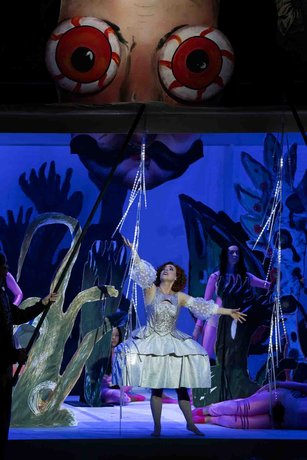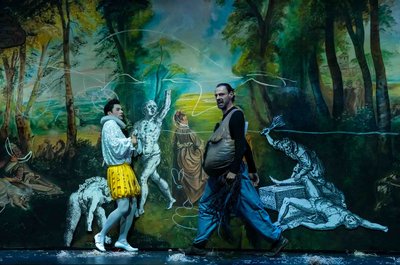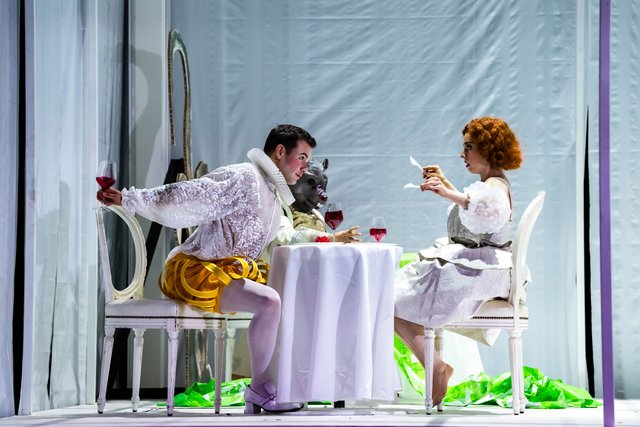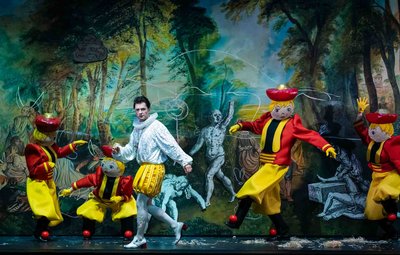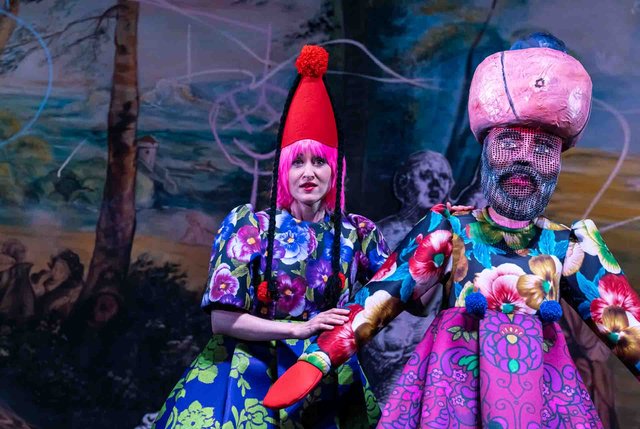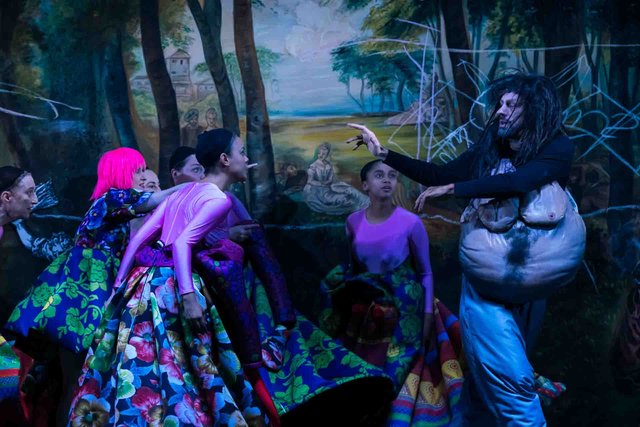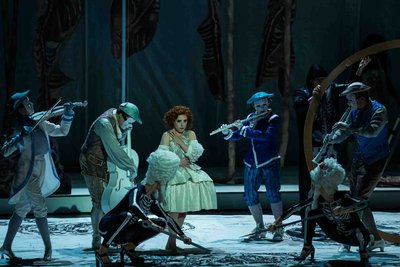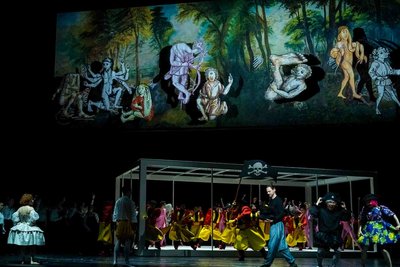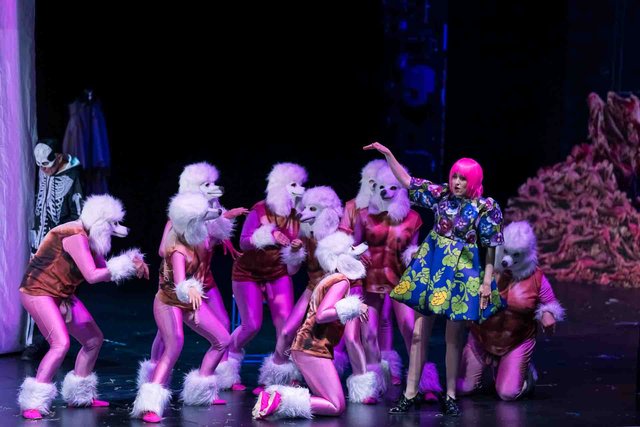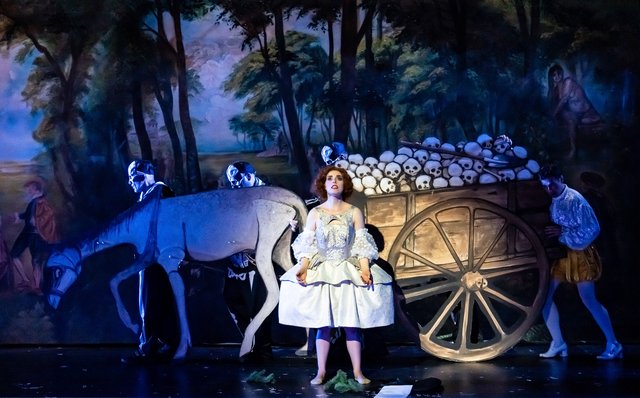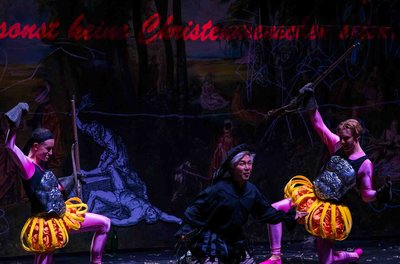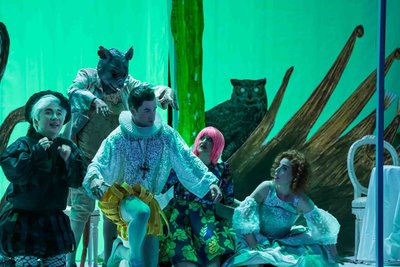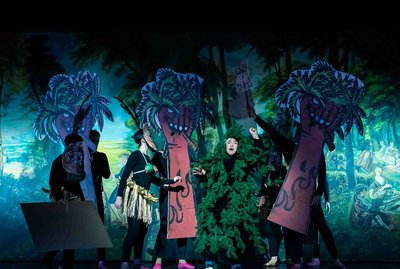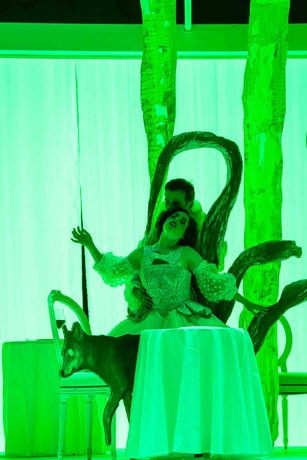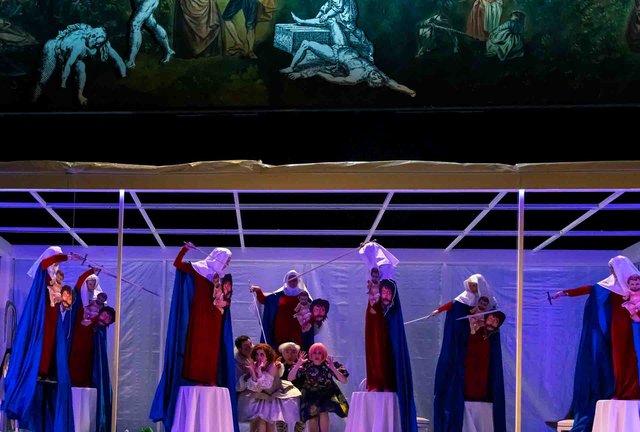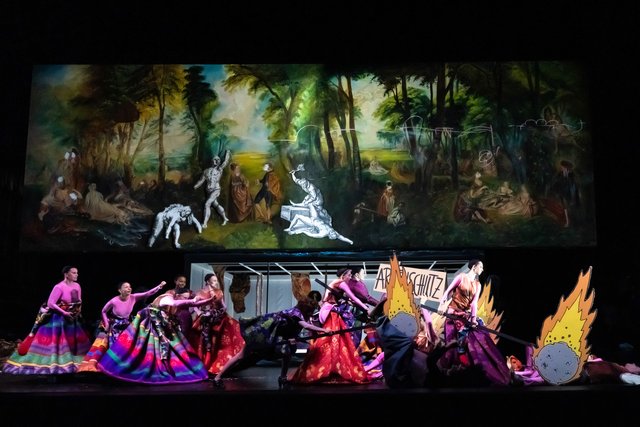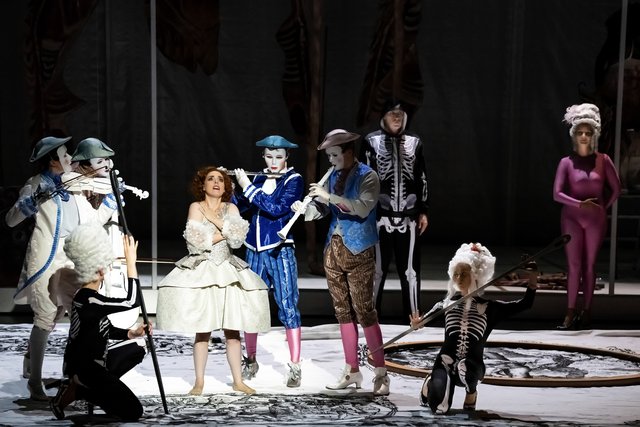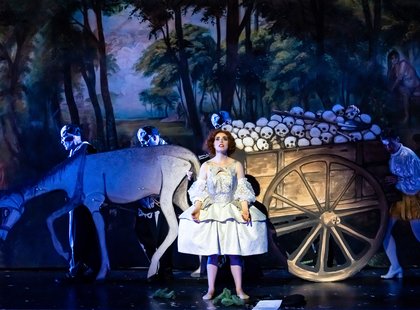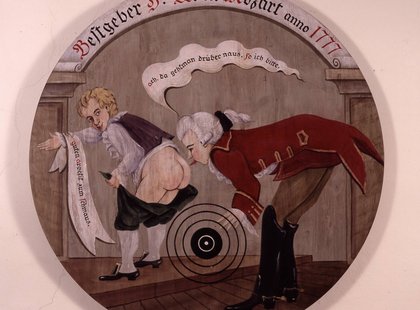Die Entführung aus dem Serail
Wolfgang Amadé Mozart (1756 – 1791)
German Singspiel in three acts
Libretto by Johann Gottlieb Stephanie
–In German | with German and Englisch Surtitles–
Conductor: Hermes Helfricht | Director: Katja Czellnik
Altersempfehlung ab 12 Jahren 2 hours 35 minutes one intermissionIf the Emperor were to give him a thousand guldens, he would pen for him a German opera, Mozart declared to his father after Joseph II had declared German to be the official language of the Empire and the Burgtheater in Vienna to be its National Theater. In just a few months Mozart composed his German singspiel THE ABDUCTION FROM THE SERAGLIO, his »Turkish« opera which — like all his operas — is one having to do with love.
Up till then the lives of Konstanze and Belmonte appeared to be in every detail predictable: marriage, high standing in society, children — the result of a stable relationship that »till death does it part«. Then all at once everything changes. The pair is separated. Konstanze winds up in a seraglio (a harem) and must ward off the advances of her new master.
She must especially shield herself against a gnawing question: could she fall for a man other than Belmonte? When the longed-for future husband finally finds her and her abduction is planned, their union for both has been called into question. Did their love for each other survive the separation? And was it from the start at all love or some sort of pleasant couple routine?
Wolfgang Amadé Mozart accompanies in the opera he composed in 1782 his principle characters with much love and deep emotional sensitivity as they experience hope, joy, sadness, all sorts of torture before they together, matured, leave behind the seraglio.
»The material depicts in every pore the displayed superiority of enlightened Western Europe: against the supposedly violent and primitive Muslim barbarians. [...] For the new production it is important to play the piece »in total« [...] in order to understand such a deliberately dialectical piece as an essential part of a cultural history that is still ambivalent today,« says director Katja Czellnik. Czellnik's path towards this understanding leads her to a production in the style of French Fairground Theater as a place of masking, exaggeration and liberation. In street theater, nothing is what it seems at first: mimes and monster-like creatures appear, the operas of the nobility are taken to task, commonplaces are turned upside down, and anarchic counterworlds open up to the audience.
